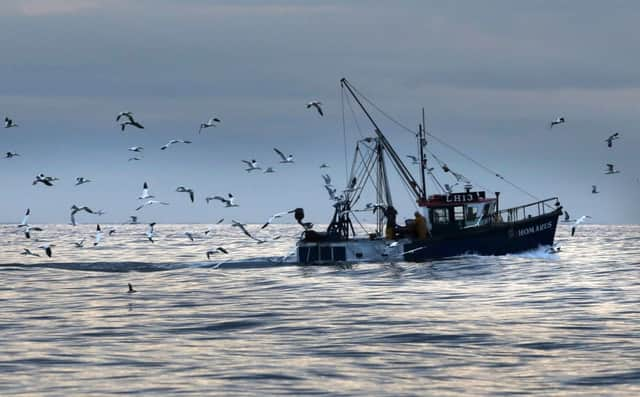Stephen Jardine: Plenty to chew over as Brexit is digested


On Thursday, industry leaders gave evidence to the Scottish Parliament’s European and external affairs committee. Bertie Armstrong of the Scottish Fishermen’s Federation told MSPs that his industry would now be “unleashed” to demonstrate “world leadership” as a result of the vote to leave the EU.
The fishing industry has been a long-standing critic of the EU over quotas and bureaucracy so its enthusiasm for life after Brexit is perhaps not surprising. However, that voice is not alone. Before the vote the whisky industry had warned of the dangers of leaving the single market, saying it was “central to the success of Scotch”. This week, the boss of Scotland’s biggest whisky producer told a different story.
Advertisement
Hide AdAdvertisement
Hide AdDiageo CEO Ivan Menzes said that Brexit will not affect Scotch exports, claiming instead that it is an opportunity to open up whisky to new markets. He said the decision “is not a big deal in terms of business performance”.
The CEO of another of Scotland’s top ten food and drink producers told me he was also reassured by what has happened. “So far, so good. Our worst fears have not been realised so far,” he said.
Different parts of the industry have different views on this. Scotland’s farmers are concerned they could end up being used as a bargaining chip in EU Brexit negotiations.
Speaking at Thursday’s Holyrood meeting, Clare Slipper from NFU Scotland called for a commitment to maintain CAP support levels in the run up to Brexit and in the years immediately afterwards to maintain stability and confidence. Analysts warn that if support is not forthcoming, some farms will be forced out of business.
In the middle of this is the development body responsible for the food and drink industry. Next year, Scotland Food & Drink is to unveil a new strategy for the sector with a roadmap to take it to 2030. The aim is to build on existing growth.
Back in 2007, food and drink industry turnover was £10 billion. It is on track to reach £16.5bn by next year. However, that depends on retaining a strong home market and continuing to build exports overseas.
Scotland Food & Drink chief executive James Withers views the Brexit decision as offering “a mixture of challenge and, potentially, opportunity”.
That depends upon some key issues being resolved. Labour supply is a major concern. Scottish agriculture is dependent on migrant labour as seasonal fruit pickers. Without approximately 39,000 foreign workers, the sector would struggle.
Advertisement
Hide AdAdvertisement
Hide AdTrade agreements are another concern. With Europe supplying three out of the top five export markets for Scottish food and drink, ongoing access to the single market is seen as a priority.
If the worst predictions over the impact of Brexit have not been realised, it remains very early days. Government negotiators have a lot on their plate when it comes to agreeing a deal to leave but the food and drink sector this week made it clear, industry concerns need to be on the table if the success story is to continue.